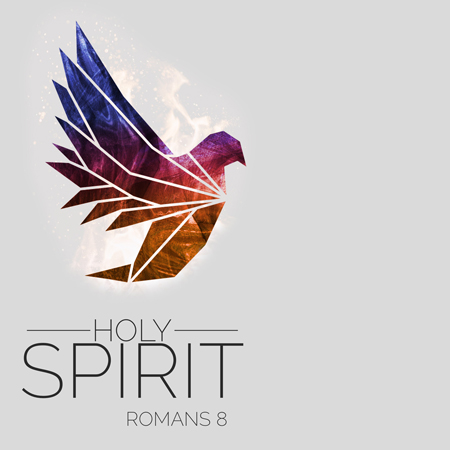The Holy Spirit and the Trinity witnessed in four momentous events: the Creation, the Incarnation, Pentecost, and the Gospel
Ephesians 3:14–21 (NLT) 14 When I think of all this, I fall to my knees and pray to the Father, 15 the Creator of everything in heaven and on earth. 16 I pray that from his glorious, unlimited resources he will empower you with inner strength through his Spirit. 17 Then Christ will make his home in your hearts as you trust in him. Your roots will grow down into God’s love and keep you strong. 18 And may you have the power to understand, as all God’s people should, how wide, how long, how high, and how deep his love is. 19 May you experience the love of Christ, though it is too great to understand fully. Then you will be made complete with all the fullness of life and power that comes from God. 20 Now all glory to God, who is able, through his mighty power at work within us, to accomplish infinitely more than we might ask or think. 21 Glory to him in the church and in Christ Jesus through all generations forever and ever! Amen.
How can you summarise the Christian understanding of God?
Central to the Christian story is the true story about God and the world, from creation through to the fulfillment of God’s redemptive plan.
Integral to this is relationship, particularly relationship between God and humanity – brokenness – we understand humanity, but how do we understand God, particularly in terms of God Father, God Son, God HS.
We’ve got a vague sense that the trinity matters, but we’re not sure why.
Prof Sanders: The deep things of God – how the Trinity changes everything – describes the doctrine of the trinity as “an awkward guest in the evangelical household”.
Yet Augustine in De Trinitate ‘in no other subject is error more dangerous, or inquiry more laborious, or the discovery of truth more profitable.’
The mystery of the marriage union may help to illustrate something of the Triunity of God. Like the married couple, but totally unique & distinctive, God the Father, God the Son, and God the Holy Spirit are one in deity.
They are three distinctive persons united together in one Godhead.
1689 Baptist Confession of Faith: In this divine and infinite Being there are three subsistences, the Father, the Word or Son, and Holy Spirit, of one substance, power, and eternity, each having the whole divine essence, yet the essence undivided: the Father is of none, neither begotten nor proceeding; the Son is eternally begotten of the Father; the Holy Spirit proceeding from the Father and the Son; all infinite, without beginning, therefore but one God; … which doctrine of the Trinity is the foundation of all our communion with God, and comfortable dependence on him.
Difficulty with the terminology (let alone the theology)
It is a theological term not a biblical one.
- By ‘theological’ I mean that it is a term used to describe what we believe the Bible teaches.
- By ‘not biblical’ I mean that the word itself never used in Scripture
Difficulty also in the fact that of all the world’s religions Christianity is only one that embraces the doctrine of three divine persons in one Godhead.
Difficulty with the first of the Ten Commandments reminded the Israelites that they were to worship only the one true God (Ex. 20:3; Deut. 5:7).
Having reminded the Israelites of God’s work on their behalf, Moses said, “The Lord is God; besides him there is no other” (4:35).
The New Testament is equally clear in affirming that “there is but one God” (1 Cor. 8:6; see also Eph. 4:4–6; James 2:19).
Sometimes it’s easier to say what we don’t believe than what we believe:
- Orthodox Trinitarianism rejects tritheism which believes that the doctrine of the trinity means that Christians believe in three Gods which has been rejected by the church throughout history.
- Orthodox Trinitarianism rejects modalism which believes that Father, Son, and Holy Spirit are different names for the same God acting in different roles or manifestations (like the well-intentioned but misguided “water, vapor, ice” analogy). (as Sabellius did in the third century) – [God Father Son Holy Spirit on sidelines]
- Orthodox Trinitarianism rejects Arianism which denies the full deity of Christ – Council of Nicea (325 ad), when assembled bishops outlawed the claim of Arius that the Son was not eternal but was created by God, who thereby became his Father….


0 Comments